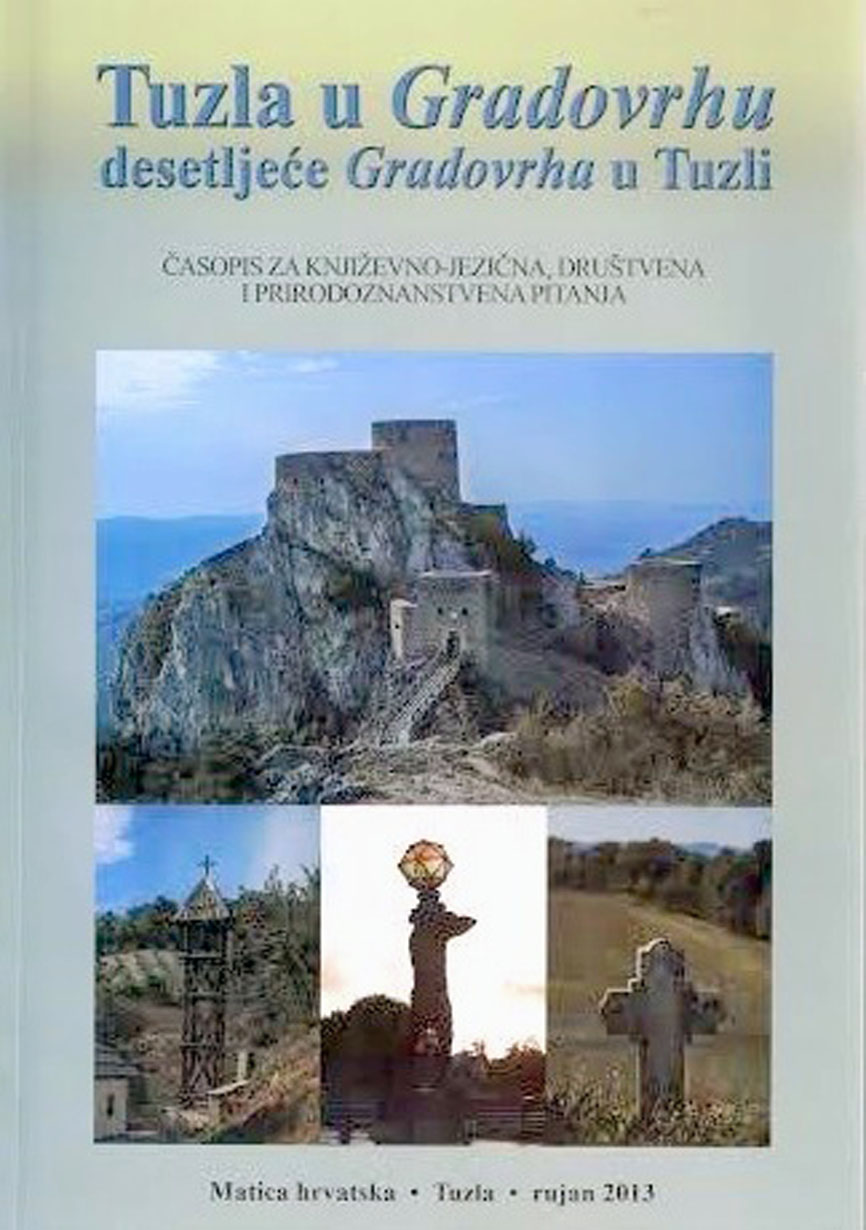
We kindly inform you that, as long as the subject affiliation of our 300.000+ articles is in progress, you might get unsufficient or no results on your third level or second level search. In this case, please broaden your search criteria.

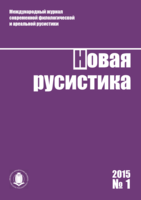
The aim of this article is to analyse semantics of verbal meanings connected to Solovyov's mystical and philosophical opinions. The basic task was the excerption of philosophically important poetic images of sound typical for author's individual style. Consequently, such lexical units which bear a corresponding philosophical meaning in selected poetic images were detached. Based on a further analysis, other lexemes which bear association nuances of sensual meanings and reflect the intellectual correlation between poet's language and writer's philosophical thinking were defined.
More...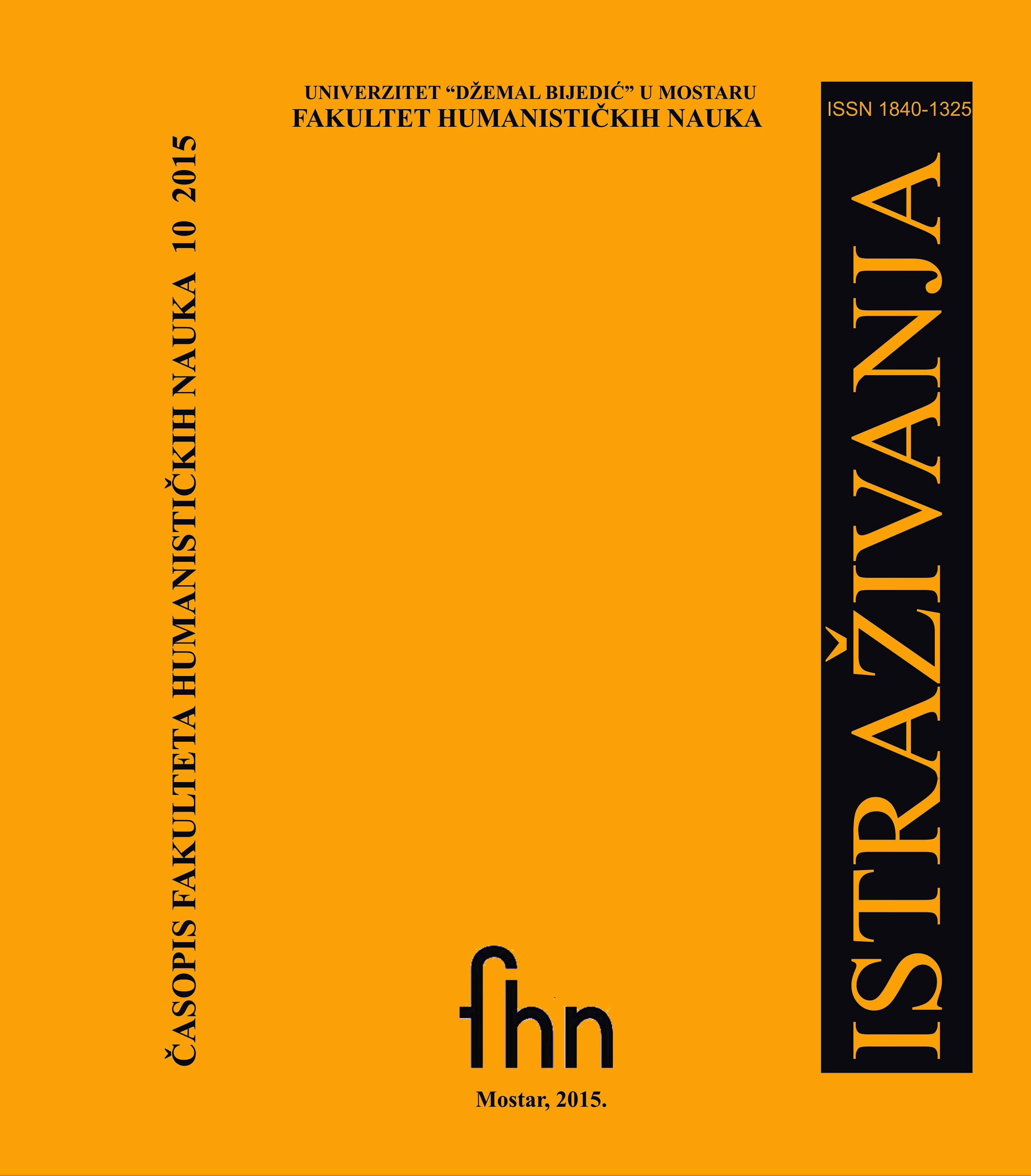
This paper deals with the literary technique of metafiction in Doris Lessing’s novel The Golden Notebook and with some of the ways of its realization. The paper attempts to analyze the problem of presenting the truth in novel writing, or the representation of reality in fiction, which is one of the main preoccupations of the novel’s protagonist, Anna Wulf.
More...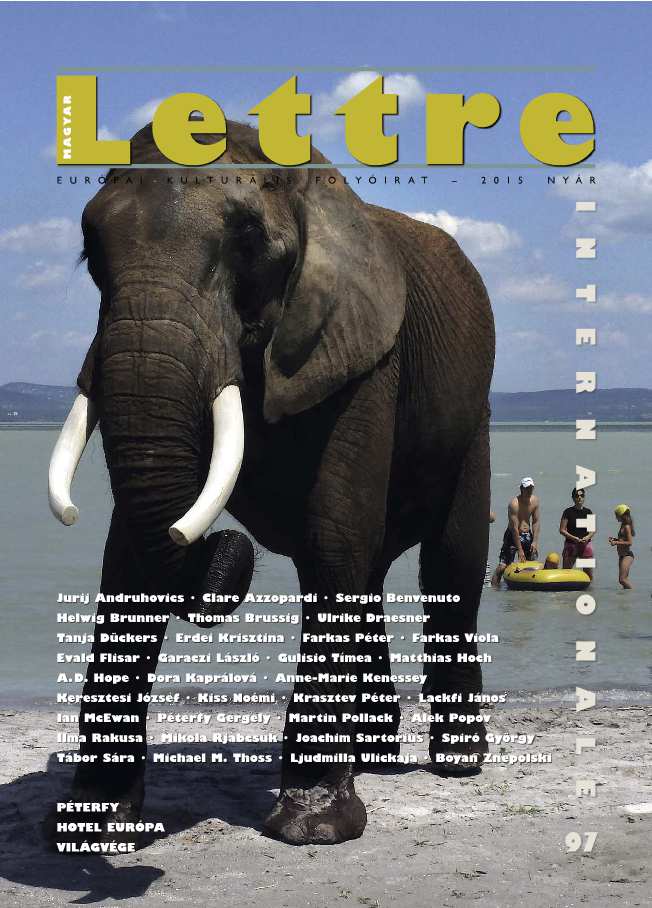
The paper consists of four parts. The introductory part focuses to the argument made by the Slovenian literary theorist M. Juvan who claims that literary theory should be restructured as the theory of literary discourse, based on the “discourse turn” in the contemporary stylistics. The paper further discusses the style in the field of discourse by analysing ambiguous relationship between style and discourse, and by introducing the concept of style as an identity marker (Juvan). This is followed by the concept of the stylistics of (inter)discourse based on the term interdiscursivity. The notion of interdiscursivity is discussed through its different applications and definitions (Kovačević and Badurina, Fairclough, Pecheux, Link), and its distinctiveness in relation to intertextuality. The final part of the paper offers an analysis of interdiscursivity in selected literary texts, with special emphasis on the texts of literary avant-garde (Slabinac), and relates interdiscursivity to J. Ranciere’s politics of literature.
More...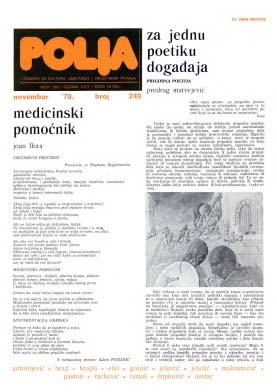
Mi u Sloveniji nemamo kritiku prevoda, kritiku književnih dela prevedenih sa stranih jezika na slovenački. Zato se domaća literarna kritika prevedenim delima bavi samo jednostrano, nepotpuno, manjkavo, jer ne poznaje ni osnovna načela teorije prevoda, ni teoriju prevodilačke kritike. To se može videti na svakom koraku. Imamo malo kritičkih analiza koje se bave problemima prevođenja. Imamo malo članaka i rasprava o teoriji i praksi prevođenja, bilo izvornih ili prevedenih. Nemamo posebnu publikaciju za objavljivanje prevedene literature i, s njom povezane, metaliterature (kritika i teonija prevođenja). Nemamo odgovarajućih ustanova za samostalno izučavanje i posredovanje u prevodilačkim problemima — problemima nauke koja se u poslednje vreme osamostalila pod imenom teorija prevođenja.
More...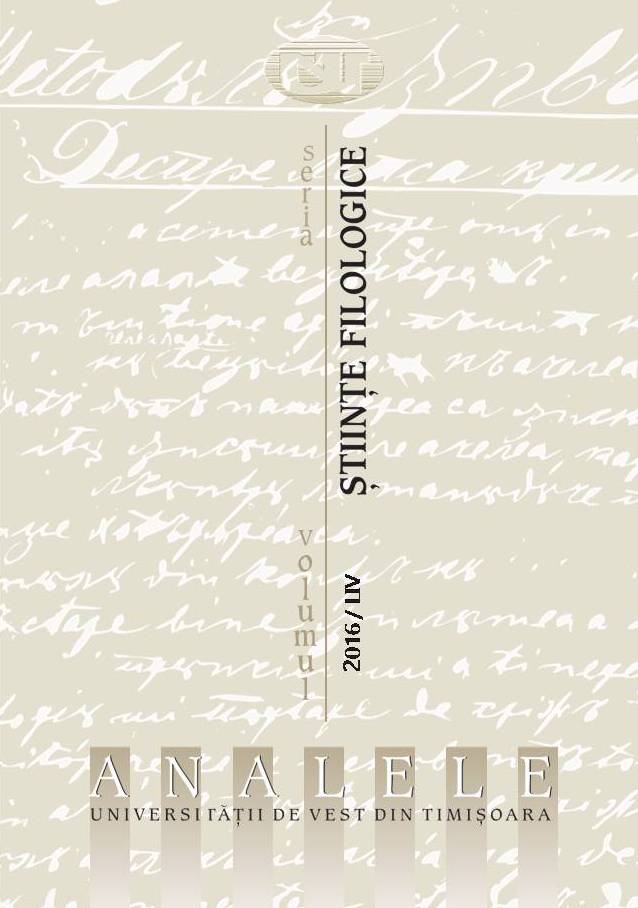
Marjorie Levison introduced the notion of New Formalism in 2007, to name a movement within literary criticism which vindicates the methodological principles of New Criticism, with the aim of dealing with the questions posed by the indeterminacy and undecidability of literary meaning, as upheld by the deconstructive critics. From then on, several researchers have joined the movement, such as Verena Theile and Linda Tredennick, who edited the volume New Formalism and Literary Theory (Palgrave Macmillan, 2013). This work is remarkable because it provides the Neoformalist methodological basis. Both Theile and Tredennick start from pedagogical premises with a view to recovering close reading as a didactic method for teaching literature, but without contradicting at any time the deconstruction theory on the instability of literary meaning. Despite the newness of approaching Derrida’s theory from a pedagogical point of view, the New Formalist perspective does not clarify the issue of the impact of hermeneutical relativism on education. The present article engages with the matter in the light of Theile and Tredennick’s didactic proposal and, in addition, weighs the consequences for teaching literature, considering the deconstructive denial of hermeneutical consensus.
More...
For the last two decades, postcolonial theory has become one of the most dominant perspectives in the study of literature and culture in the Western Academia (Chioni Moore 2001). Together with its increasingly more authoritarian voice, postcolonial theory has also become able to influence peripheral scholar communities, including those coming from cultures with no direct link with the historical phenomenon of colonialisation (Anfeng 2007). This influence seems to be of two distinct types. The first one is a mimetic one (i.e. unintermediated by local experiences), which has generated an imitative postcolonial discourse in local academia, mostly used by members of English language departments. The second one, which may be called particularizing (i.e. intermediated by local cultural experiences), has tried to adapt (to various degrees of intensity) the postcolonial perspective to local conditions. This second type of influence can be seen, for example, in the adaptation of postcolonial theory to the analysis of postcommunist cultural phenomena in Central and Eastern Europe (Kelertas 2006). The same thing has happened in Romanian literary studies, although at a low degree of intensity. In this article, I will try to analyse the impact of postcolonial theoretical speculation on the Romanian literary studies of the last two decades. By focusing especially on the practical problem of the relationship between postcolonialism and postcommunism, I will try to evaluate how adaptable postcolonial theory can be in relation to local cultural / historical experiences. Last but not least, I will try to analyse the way in which these theories adapt to local particular conditions.
More...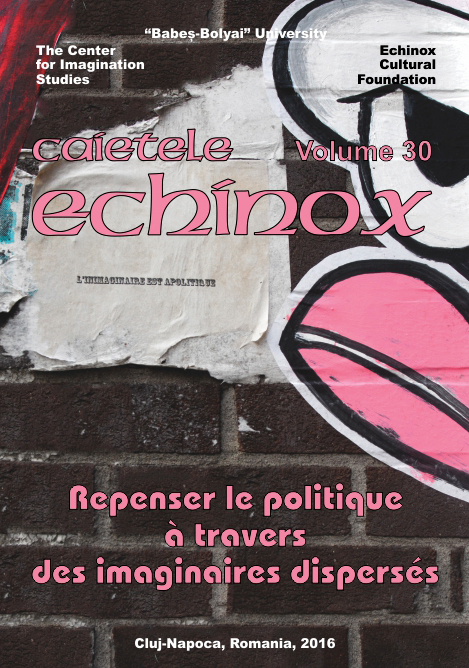
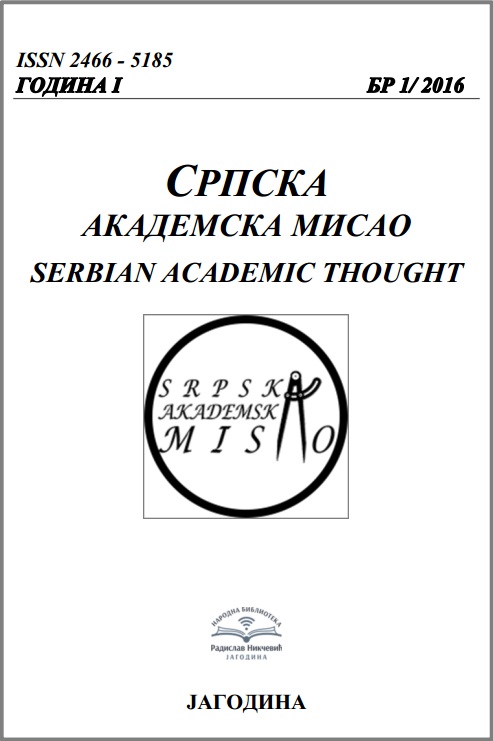
This paper deals with relations of truth and fiction in afore mentioned V. Wolf’s work of fiction. We have tried to define terms truth and fiction in relation to V. Wolf’s understanding of literary forms and genres. Research methods used in this paper are close reading and passage comparison of V. Wolf’s fiction and her essays. Both in fiction and essays she is determined to understand life but accomplished effects differ due to formal differences among these discourses.
More...
In this paper we analyze the literary criticism and literarytheoretical reflection, and paradigmatic foundation of positivism and realism, their permeation, merger and differentiation. We do this in the case of theoretical systems of major European scholars and literary historians who have marked this direction in world literature (Sent-Bev, Ernest Renan, Hippolyte Ten, Wilhelm Scherer, Gustave Lanson, Anatol France, Belinsky, Chernyshevsky, and others). With their work in the field and involvement in study of history and criticism, they have proven the purpose of utilitarianism in literature and the specificity of mimetic in realism. In this paper we are revealing their importance in relation to our moment in time, where being set up in temporal distance we can observe the extent to which these theoretical works have influenced the formation of the aesthetic and axiological judgments in the future. Literary criticism in the era of realism was highly developed, and this not only in Eurocentric circles, but beyond. Understanding realism in literature and utilitarian requests and their achievement are not uniformed. They differ from theorist to theorist forming a wide, but in the basic mimetic demand a coherent theoretical system, which is confirmed by its complexity only after being viewed as a whole.
More...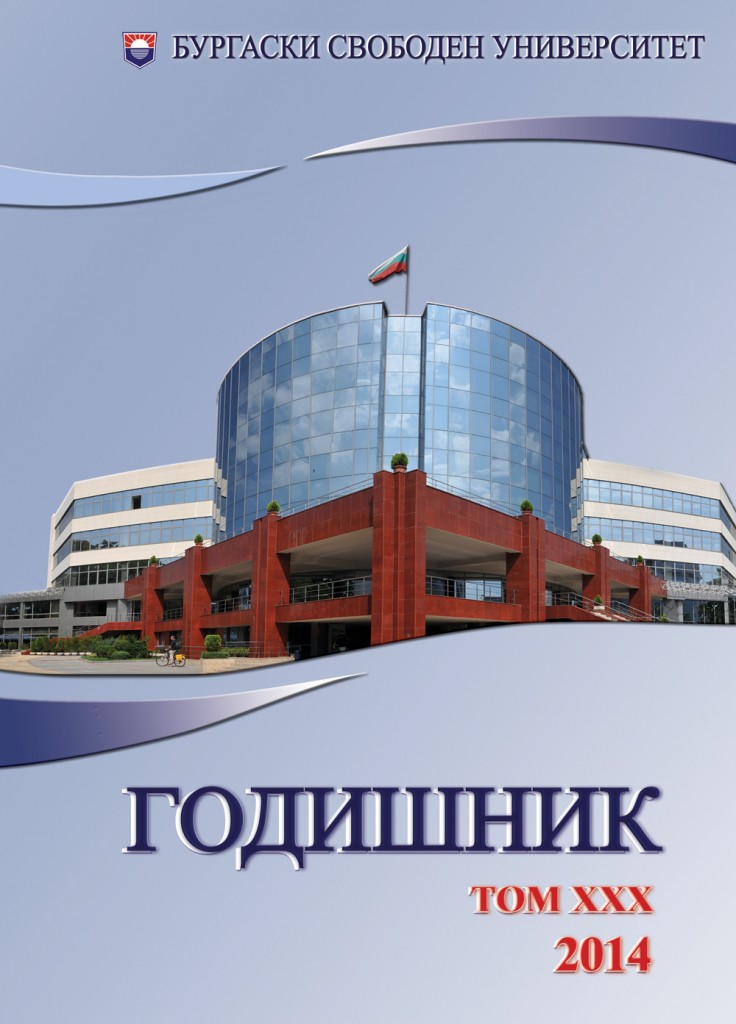
Proposed article problematizes Yordan Badev’s figure and intellectual activity – editor of the elite journals „Slovo”, „Zora”, „Makedoniya”, the magazines „Zlatorog”, „Rodina”, „Narodnost” and Masonic „Mirogled”. It shows totalitarian procedures on the person and his work
More...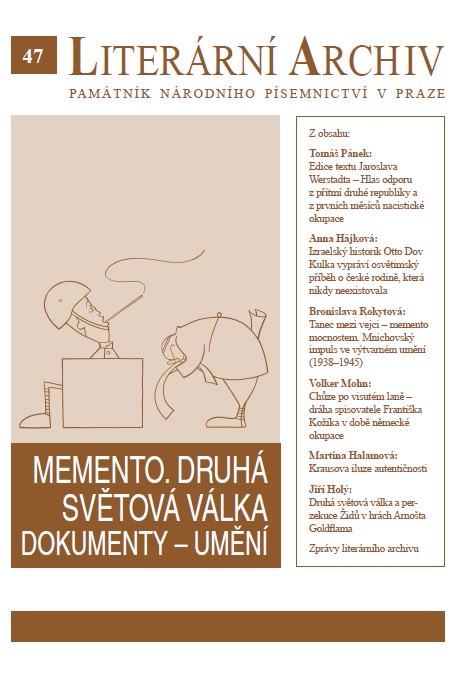
This contribution places an edition of a document from the archives into its historical context. It is the text of a proposal for a literary monthly for young people, to be published once the Second World War would finally be over. The proposal was made in 1944 by Jiří V. Svoboda (1924–1981) to Josef Träger (1904–1971), the director of the Melantrich publishing house, but was never carried out.
More...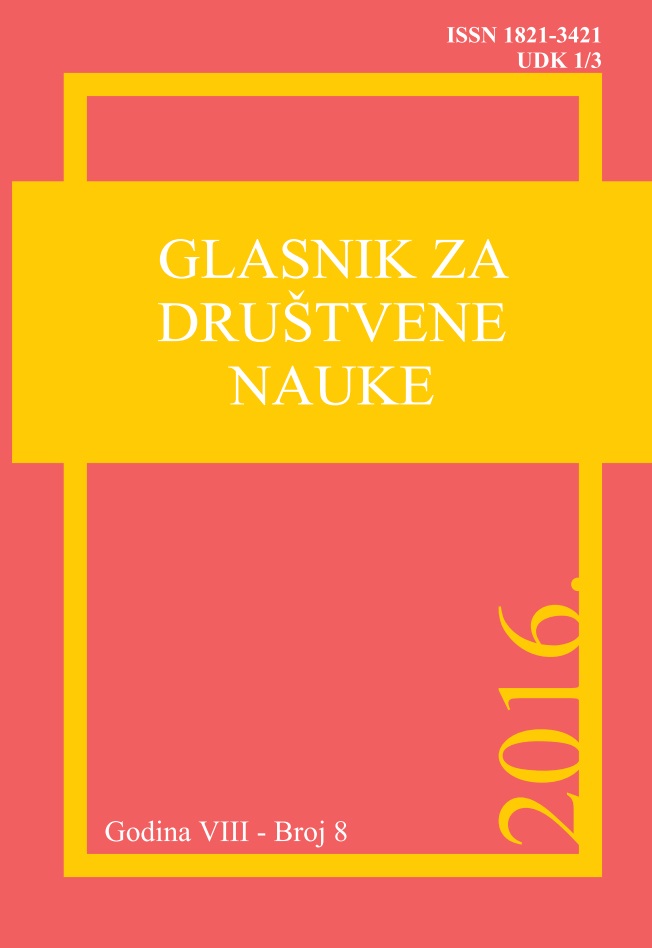
This paper deals with the theme of honor in two main representatives of the picaresque novel subgenre - Lazarillo and Buscón. After the introduction, which provides an overview of the Spanish novel in the 16th and 17th centuries and its key subgenres, detailed attention is dedicated to the picaresque novel as a national subgenre. The selected representatives are presented through all important factual information, their formal and content characteristics. The paper focuses on treating the theme of honor in these two literary works, observed from the perspective of the character of the protagonist, the anti-hero – picard (pícaro), but also from the perspective of his family and social context. Special emphasis is on the idea of differentiation of the idea of honor, which can be seen as external – material or internal - human and moral.
More...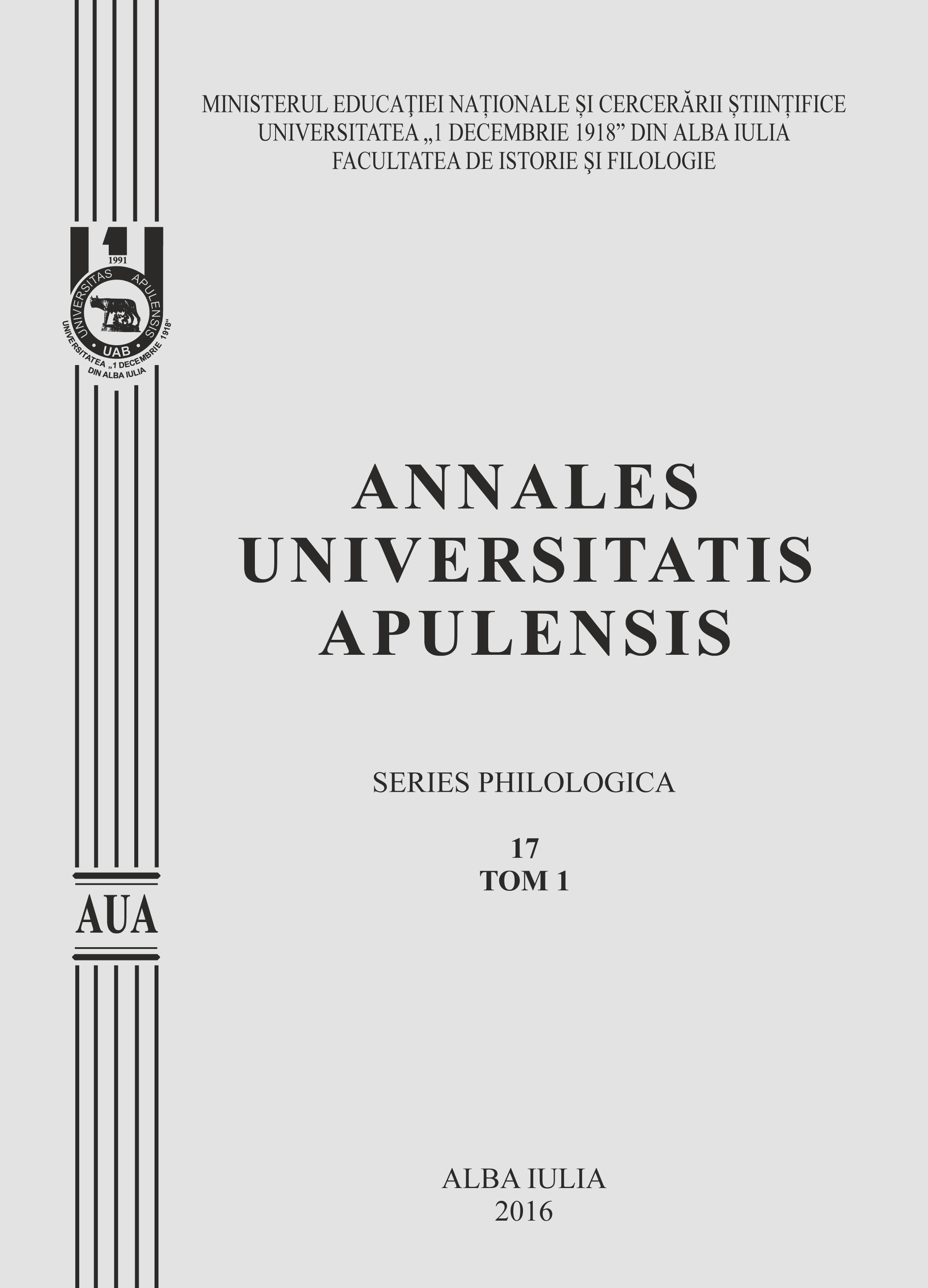
The paper aims to illustrate that va + subjunctive future: va să cânte [will sing], va să vină [will come], used in Old Romanian alongside va + infinitive future: va cânta [will sing], va veni [will come], is still used in Modern Romanian to express future time reference, despite claims that it disappeared from the language by the end of the 17th century (cf. Valeria Guțu -Romalo, Le futur en Roumain aux XVIe – XVIIIe siècles). Various examples taken from religious texts, newspapers articles, TV shows, commercials, etc. will prove that va + subjunctive is still an active means of expressing future time reference in Romanian, while emphasizing on some distinctive features, such as: limited usage (it is used only with verbs like a fi [to be], a veni [to come], a judeca [to judge], a zice [to say]), low frequency or a paradigm restricted to the 3rd person singular.
More...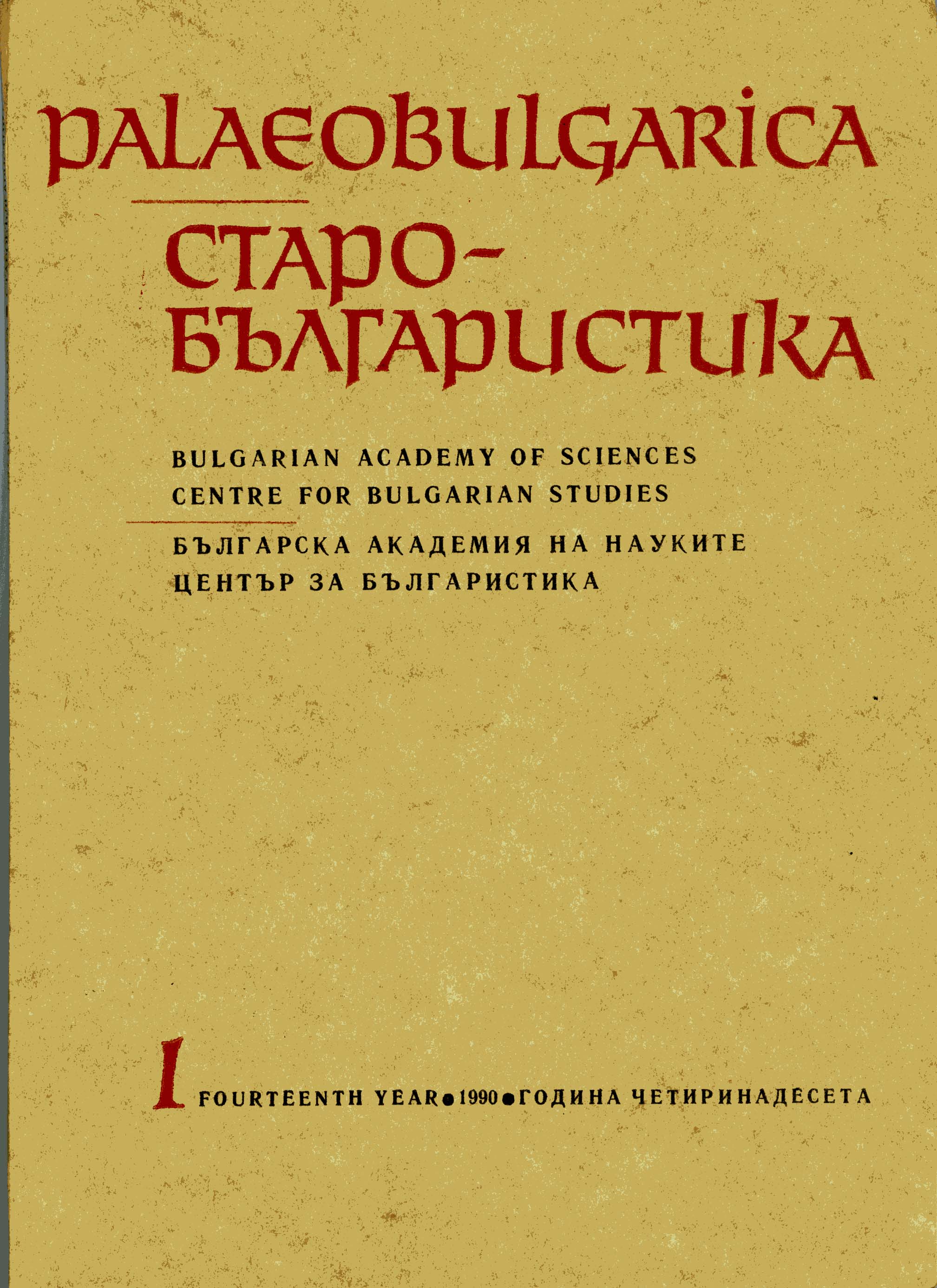
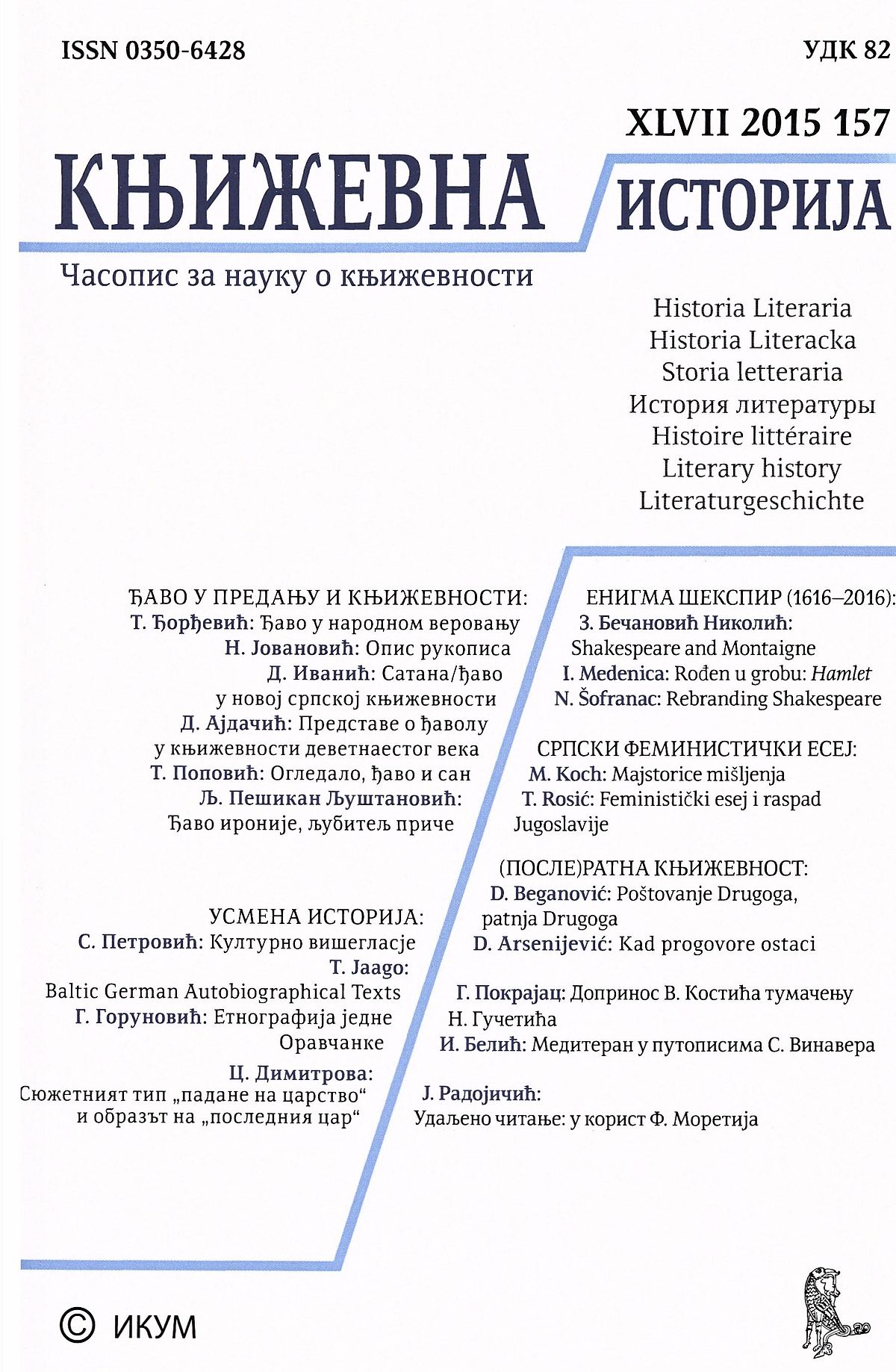
The intention of this paper is to analyze the image of the Mediterranean in the Stanislav Vinaver’s travelogues Izlet po Jadranskom i Sredozemnom moru (1927) and Konačna Venecija (1938) by applying the methodological postulates of imagology. With reference to the importance and status of travelogues in Serbian avant-garde literature (a travelogue was regarded as a marginal genre in earlier epochs) and Vinaver’s opus, it shows that the Mediterranean, present in the entire oeuvre of one of the leading avant-garde artists, is a field in which he scrutinizes many issues – from art, religion and civilization to cultural and personal identity which is (re)defined in the encounter with the Mediterranean heritage – and could therefore be regarded as a constituent part of his poetics. The Mediterranean, which until the discovery of America in 1492 and the travel around the Cape of Good Hope from 1497 to 1498 was the epicenter of the world, is for the travelogue writer Vinaver ambivalent space. It is composed of the neglected military cemeteries in Corfu, debauchery of Marseilles, disharmony of modern life which overwhelmed Sicily, as well as ancient layers of Pompeii and Carthage, which are the occasion to define art and emphasize the superiority of antiquity, which emanates through the centuries and offers comfort and salvation. In Vinaver’s vision art must not be reduced to decorative dimension; it should carry the mark of one who creates it, a reflection of his soul – it has to be modern and timeless at the same time. Through reflections on the clash of civilizations, antagonism between North and South, criticism of machinery and technological progress, the author enters into the dialogue with Venetian and Japanese painters, Wagner, Goethe, Byron, Chinese poets, oriental stories – and it illustrates exactly what the Mediterranean is – an amalgam of cultures, layers of history and civilization. Vinaver’s awareness of Byzantine, Mediterranean heritage and continuity of his own culture is of great importance, which is most obvious in the travelogue Konačna Venecija. Although the travelogue writer’s vision in the encounter with the Other is most frequently wide and humanistic, with the inevitable stereotypes, at certain points, especially in the encounter with the Arab world, in Africa, we notice the lack of tolerance and the image of Other which corresponds to the Orientalistic discourse. Vinaver’s revelatory journey is both cultural fact and identity quest. Full of knowledge, an open mind, while traveling our writer occasionally falls into the traps of stereotypes, but his great achievement is the fact that he recognizes the Mediterranean figure of his and our culture, as well as he observes the identity as a creative mixture of both national and European. In this way he broadens our literary horizons and reveals relations that are (temporarily, we hope) lost.
More...
Oral history is generally considered to be a method of qualitative interview, whose purpose is to collect oral evidence, memories and oral tradition. Sometimes the material gathered in qualitative interview is also called oral history, by analogy with terms ‘life story’, ‘life history’, or ‘personal (experience) narrative’. Oral history is an important means of providing information about the past of oral and indigenous societies, or about the recent past of literate societies from the perspective of ordinary, oppressed, marginalized people, or those who were left out from the official history. Oral history interviews serve as helpful evidence in social history and microhistory research, as well as in attempts to reconstruct history of everyday life in the past. Although the method of qualitative interview can be traced back to folkloristic, ethnological and anthropological fieldwork, historians were the first who established it as a legitimate scientific instrument in the process of providing historical evidence, accepting it per se, or as a supplementary to a written evidence. A short survey of the history of oral history presents principal phases of its development. The earliest reference to gathering oral sources shows that they had been used as evidence in historical, ethnographic and other writings, and analysis of oral tradition indicates that some genres, like genealogies, historical legends, or epic, were respected, believed to be true and served as local community history. The advance of methodology foregrounded new questions concerning every part of the research process, e.g. regarding the roles of researcher and interviewee, the nature of the interview as a dialogue and investigating technique, relationship between record, text, memory and narration, interviewing process as reflexive practice. The contemporary stage is marked by the influence of cultural and postmodern turn in humanities and social sciences. By accepting orientation to reconstruct ‘history from below’ and to develop intersubjectivity and sensibility for the socially powerless people and people who were invisible up to that moment, oral history gained new tools and perspectives. At the same time, oral history from the beginning grew as an interdisciplinary field, which can be demonstrated not only by huge scope of various research topic, but also by the methodology of a qualitative interview, which several humanistic and social disciplines share and further improve according to their specific needs. Current ontological and epistemological points of discussion are connected to the reassessment of validity of the oral history method, veracity of oral sources, analogies and differences between the oral history and oral tradition, reliability, organization and construction of memory, typicality of interviewees as representatives of a certain social group, phenomenon of collaborative authorship, analysis of polyphony (narrative and actual voices) in discourse, as well as the issues of narrative construction and interpretation.
More...
This paper has as its goal to show the path of development for the theoretical thought of Franco Moretti; one of the most important contemporary historians and literary theorists. Franco Moretti is one of those critics whose work constantly provokes the traditional methods of studying literature, and puts forth a new and radical approach. In the case of Franco Moretti, such an approach entails distancing oneself from the interpretation of individual literary works and literary canon in order to study a much larger collection of texts from the entire literary market (“the great unread”). Following the model of the natural sciences and sociology, such a large database of texts should serve as a reliable pattern for the establishment of a literary system that in its abstraction and stability become the basis for a more scientific and comprehensive study of literature. This, however, does not mean that by Moretti’s advocating of methodological abstraction separates himself from the messy reality of social history. As a primarily Marxist critic, by separating himself from the abstract he searches for the all-encompassing laws and forces in play, so that they can be re- contextualized and confirmed in practice. In a desire to draw attention to Moretti’s methodology, this paper specifically focuses on two of the author’s works Distant Reading and The Bourgeois: Between History and Literature.
More...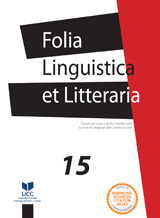
Jasmine is a unique novel written by Bharatee Mukherjee about an Indian girl who comes to America to pursue her dream of freedom and a better life. However tempting the idea about the American dream might appear to Jasmine, her journey across the ocean results in many difficulties and problems regarding her adjustment to a new society. Jasmine is trying to find herself by constantly questioning her identity and cultural affiliation. In order to re-invent herself and fit into American society, Jasmine constantly transforms her personality. This quest for the Self leads Jasmine to a realization that she is neither Indian nor American, but something in between. On the example of Mukherjee’s novel, the purpose of this paper is to explore the issues that many immigrants in diaspora struggle with in their search for identity, as well as the ways in which the transition from one place to another changes their attitudes and points of view.
More...